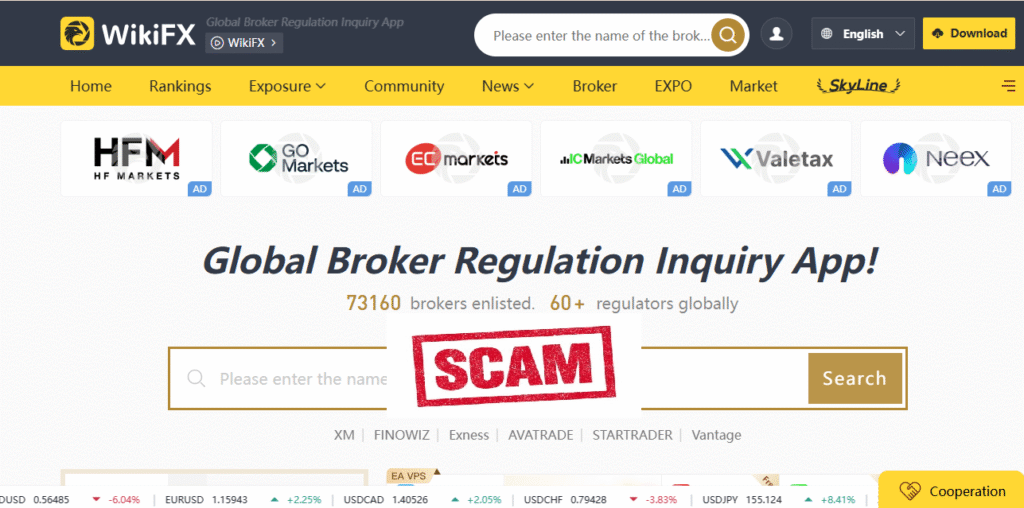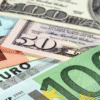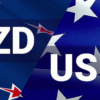WikiFX Scam? Beware of This So-Called Forex Broker Verification App
In the trading world, countless companies, brokers, and apps claim to offer safety, transparency, and profitable opportunities. Naturally, traders seek reliable platforms that can help protect their investments and steer them away from scams. One name that often appears in this search is WikiFX. Although it promotes itself as a credible forex broker regulatory inquiry app, growing reports and user reviews indicate otherwise. Many traders now caution that WikiFX may be a scam-like platform that misleads users, supports unlicensed brokers, and prioritizes revenue over fairness and transparency.
This blog will explore key concerns about WikiFX, revealing how this broker-listing platform can negatively impact both traders and legitimate trading brokers.

What Exactly Is WikiFX?
WikiFX promotes itself as a highly trustworthy and reliable platform designed for traders who want to verify broker licenses, read genuine reviews, compare ratings, and avoid scams. Through its website and the WikiFX Pro App, the company claims to provide everything needed to evaluate a broker—license verification, performance history, and real user feedback—all in one convenient place.
However, the reality appears quite different. Numerous sources and user complaints suggest that WikiFX prioritizes profits over trader safety. The platform has been widely criticized for featuring and promoting unregulated or high-risk brokers, enabling scam operations that block withdrawals, and charging brokers for higher rankings and favorable visibility. As a result, many traders have reported financial losses and misleading experiences after trusting the platform.
Paid Broker Listings: A Risky Deception
One of the most concerning aspects of WikiFX Scam is its practice of asking brokers for money to increase their listing visibility. Essentially, brokers pay to appear higher on the platform’s rankings or to earn “awards” and positive ratings.
This creates a conflict of interest:
- Brokers are motivated to pay for promotion rather than maintain ethical practices
- Users are misled into trusting brokers based on paid rankings rather than actual credibility
- This scam broker listing platform profits regardless of whether a broker is reliable or fraudulent
In other words, the platform earns money while both users and brokers can suffer. Users may deposit funds with brokers that appear “high-rated,” only to face blocked accounts or denied withdrawals. Meanwhile, legitimate brokers are pressured to pay just to compete in visibility, further skewing the platform’s integrity.
False Broker Endorsements & Manipulative Tactics
Another aspect of the WikiFX scam is that it is known for showcasing “regulated brokers” and flashy awards. However, many of these brokers have been publicly exposed for:
- Blocking accounts for vague “violations”
- Withholding withdrawals
- Disappearing after receiving deposits
As part of the WikiFX scam tactics, the platform uses fake or paid endorsements to create a false sense of legitimacy, leading users to believe certain brokers are reliable. Their rating and verification methods remain intentionally unclear, providing no transparency about how scores are calculated or how licenses are actually checked.
Meanwhile, the WikiFX Pro App and browser tools aggressively push downloads and notifications under the claim of “protecting traders.” In reality, these features act as funnels, directing users toward high-risk or unregulated brokers—many of which are known for blocking withdrawals or manipulating trading accounts.
Trader Experiences Show a Clear Pattern of Loss
Countless real traders have reported being deceived by what they describe as the WikiFX scam, sharing similar troubling experiences:
- Trading accounts suddenly frozen without evidence, often for vague reasons like “suspected collusion.”
- Withdrawal requests repeatedly rejected based on unclear or false explanations.
- Brokers showcased as “regulated” later exposed as completely unlicensed.
- Customer support disappearing after users make deposits.
- Brokers vanishing entirely after larger funds are transferred, leaving traders with no way to recover their money.
Even worse, WikiFX and the promoted brokers frequently shift responsibility onto the victims, accusing them of violations such as “hedging,” “using EAs,” or “fraudulent activity”—claims that are often not supported by any official terms or agreements. These tactics are used to silence complaints and shield unethical brokers from accountability.
WikiFX Scam Warning: Profits Come Before Protection
The platform’s business model appears built to generate revenue at the cost of trader safety and trust. By selling premium placements, pushing paid rankings, and creating a false appearance of regulatory oversight, WikiFX:
- Misleads inexperienced traders into high-risk decisions
- Builds a false sense of security through awards, scores, and biased ratings
- Pressures brokers to pay for visibility rather than focus on ethical practices
In short, the WikiFX scam goes beyond misleading users—it operates as a system where the platform profits regardless of the consequences for traders or brokers. While traders lose money and brokers face unfair treatment, WikiFX continues to earn quietly behind the scenes.
Conclusion:
For anyone exploring forex trading, WikiFX is not a trustworthy source of safety or information. Its rankings and so-called regulatory checks appear to prioritize revenue instead of genuine protection. Rather than offering unbiased guidance, WikiFX promotes brokers based on paid placements—not on legitimacy or performance.
- Traders risk frozen accounts, denied withdrawals, and lost funds
- Complaints are ignored or redirected with blame pushed onto users
- Brokers are pressured to pay for visibility rather than maintain ethical standards
- The platform continues directing traffic to high-risk and unregulated brokers
Although WikiFX presents itself as reliable, growing evidence suggests it operates more like a WikiFX scam, profiting from both traders and brokers while avoiding accountability. Trusting this platform could lead to financial loss, unresolved disputes, and blocked trading accounts.
To safeguard your money, it is far wiser to rely on official regulatory authorities such as the FCA, ASIC, or CySEC, which provide genuine verification of broker licenses. The safest approach is to stay informed, conduct independent research, and avoid platforms that exploit trust for profit.











